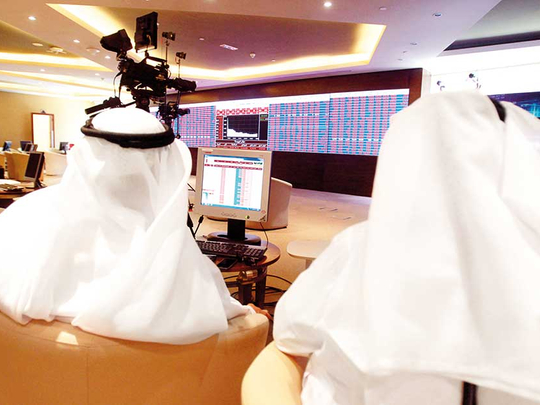
Cairo: The diplomatic standoff that’s erased $13 billion (Dh47.75 billion) from Qatari stocks and pressured the country’s 16-year dollar peg isn’t likely to ease any time soon after Saudi Deputy Crown Prince Mohammad Bin Salman was elevated to crown prince, making him first in line to the Saudi throne. Prince Salman is seen as the main driver of the nation’s political and economic policies since his father became king in 2015, including cutting off ties with Qatar earlier this month.
Qatar’s benchmark equities gauge sank into a bear market on June 6 after Saudi Arabia, UAE, Bahrain and Egypt severed diplomatic ties with the government in Doha and imposed a travel blockade. The Qatari currency extended a slide that left it at its weakest level in almost 30 years. Meanwhile, Saudi Arabia’s Tadawul All Share Index is up 8.4 per cent, and is set to post the biggest two-day gain after the Prince Salman’s appointment.
Qatar’s stock market lacks “good opportunities in the short term,” said Rami Sidani, the Dubai-based head of frontier investments at Schroders Plc. It will “probably be pressured further because valuations remain elevated,” he said.
The QE Index rebounded from a 17-month low on Thursday, paring its quarterly decline to 14 per cent, the most in almost eight years. It still trades at 12.8 times forecast earnings of its members, among the most expensive in the Middle East. The gauge’s 30-day volatility has soared to the highest in 16 months.
Gulf institutional investors have reduced their holdings of Qatari shares by more than $200 million (Dh735 million), according to data compiled by Bloomberg. While the exodus has trimmed valuations, they’re still not low enough to tempt back buyers, according to EFG-Hermes Holding, the Middle East’s biggest publicly traded investment bank.
“The sell-off hasn’t led to strong buying flows because the crisis has created an additional overhang on the market,” said Simon Kitchen, an equity strategist at the Cairo-based company. “The current crisis means a higher cost of equity for Qatari stocks, and so lower target prices.”
Analyst estimates for company earnings and share prices in Qatar, which is pouring billions of dollars into construction in preparation for hosting the 2022 soccer World Cup, have tumbled by about 15 per cent each this year, according to data compiled by Bloomberg. That compares with an increase of at least 5 per cent in both measures for Saudi shares.
“The level of escalation of the political dispute with Qatar is unprecedented,” said Sidani. “It’s still unclear whether it’s part of a prolonged action or if it will be resolved soon.”
— Bloomberg












